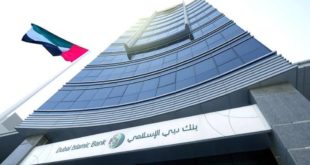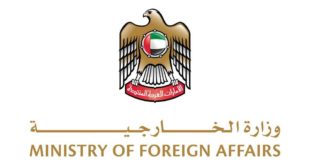His Highness Sheikh Humaid bin Rashid Al Nuaimi, Member of the Supreme Council and Ruler of Ajman, issued Law No. 2 of 2022 regulating partnership between the public and private sectors in the Emirate of Ajman.
The law aims to encourage the private sector to participate in development projects, and to attract and stimulate national, regional and foreign investments in various fields in order to support economic and social development in the emirate.
The law also aims to enable the government to implement its strategic projects efficiently and effectively, increase productivity and improve the quality of public services in the emirate, reduce financing burdens on the government’s general budget, and support the emirate’s strategic plans aimed at achieving a sustainable economy based on competitiveness, experience, and diversity, in addition to achieving Better results and outputs than the public sector can achieve on its own; The partnership between the public and private sectors helps the private sector to provide capital, knowledge and experience in project management, which contributes to expanding available financial resources, reducing project implementation times, and reducing and improving the cost of services.
On this occasion, His Highness Sheikh Ammar bin Humaid Al Nuaimi, Crown Prince of Ajman and Chairman of the Executive Council, said: “Thanks to the inspiring vision of His Highness Sheikh Humaid bin Rashid Al Nuaimi, Member of the Supreme Council and Ruler of Ajman, the emirate has today become a role model in consolidating the foundations of constructive partnership between the public and private sectors. To create the future that we aspire to, and to achieve the highest levels of excellence, and this partnership between these two sectors over the years has constituted a standard approach for the integration of roles between them; an approach that we can see in the distinguished achievements witnessed by the Emirate of Ajman through its comprehensive development renaissance.
His Highness the Crown Prince of Ajman added, “The new law reflects the aspirations of the Ajman government, which set out to draw clear forward-looking features for the next stage in financing vital government projects through partnership between the public and private sectors, which contributes to achieving sustainability for such projects in the emirate.”
His Highness pointed out the importance of this law, which contributes to consolidating the relationship between the public and private sectors by increasing productivity, improving the quality of public services, transferring knowledge and experience from the private sector to the public sector, and training and qualifying state employees of government agencies to manage and operate projects.
Develop partnership opportunities
For his part, Sheikh Ahmed bin Humaid Al Nuaimi, representative of His Highness the Ruler of Ajman for Administrative and Financial Affairs and head of the Department of Finance in Ajman, praised the law, which falls within the framework of the department’s endeavor to consolidate the concept of interdependence, integration and partnership with various government and private agencies for the mutual benefit of all, and to promote Emirate competitiveness.
He pointed out that the Department of Finance is committed to developing and investing partnership opportunities with the public and private sectors in accordance with the directives of His Highness the Ruler of Ajman, and the follow-up of His Highness the Crown Prince of Ajman, through a pioneering work system based on building complementary relationships with partners, to improve the performance of the financial sector, which in turn leads to an improvement quality of life in the emirate, and achieving common goals for all parties in line with the vision of Ajman.
Sheikh Ahmed bin Humaid pointed out that this law represents a new addition to the sustainable development process in Ajman, and contributes to laying solid foundations for building a comprehensive and integrated approach in the field of partnerships, noting that the Department of Finance will continue to develop and consolidate these foundations in close cooperation with its partners from government agencies. And private.
A comprehensive and integrated system
In the same context, Marwan Ahmed Al Ali, Director General of the Department of Finance in Ajman, said: “The law issued by His Highness the Ruler of Ajman lays solid foundations for building a comprehensive and integrated system in the field of partnership between the public and private sectors that would provide an environment that stimulates and attracts investments. In addition to its contribution to maintaining the increase in investment flow rates in the Emirate of Ajman and consolidating its position as an ideal destination for the activities of local, regional and international companies.”
The Director General of the Department of Finance in Ajman confirmed that the new law comes within the framework of the wise leadership’s keenness to advance economic activity in the emirate, in a way that supports the sustainable development process and Ajman’s vision aimed at building a happy society and green economy, in addition to promoting the growth of the national economy.
He added that the law is in line with our endeavor in the Department of Finance in Ajman to mobilize the financial, administrative, organizational, technical and technological energies and expertise available in the private sector to enhance the emirate’s capabilities, and improve its leading position in line with its strategic vision in developing and investing in partnership opportunities between the public and private sectors within a pioneering work system that meets the aspirations all parties, and contribute to providing better value for money.”
He explained that the law aims to reduce the financing burden on the government’s general budget in bearing the costs of projects, whether in the stage of their establishment, operation or maintenance costs, and to shift the management of some infrastructure projects and public services from implementation, operation and direct management to other forms of government performance linked to the approval of policies. Monitoring the quality of public services delivery in accordance with the requirements of governance, as well as providing a higher competitiveness for projects in the local, regional and global markets, in addition to strengthening the principles of governance when managing economic activity and activating procedures for managing financial resources.
Marwan Al Ali said that the conditions for concluding a partnership contract between the public and private sectors were specified by law that the project be economically, financially, technically and socially feasible.
the competent authority
The law specified the competent authority for approving projects, as the director general of the government agency approves projects, if any
 Media ININ Economy We Trust
Media ININ Economy We Trust








